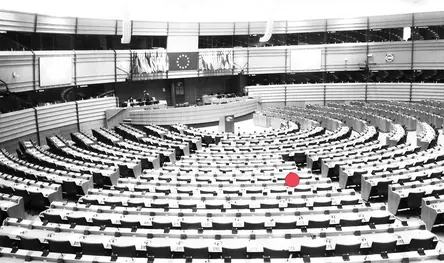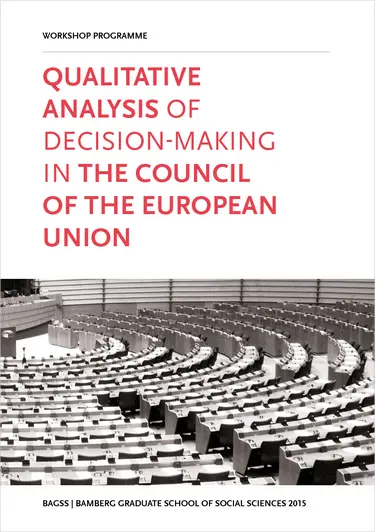// AIMS & SCOPES
▐ The idea for this workshop was quite simple: to bring together new and established researchers working in and around the field of EU studies that use qualitative methods to investigate the role and functioning of EU institutions, in particular the Council of the European Union.
The Council of the European Union is a key player in European decision-making and still one of the most puzzling institutions for EU research, especially with regard to its inner workings. Over the last years, a number of pertinent quantitative and qualitative studies have addressed key questions, such as voting patterns and coalitions in different policy areas in key EU institutions, socialization effects in the Council, the influence of external actors, such as interest groups, the role of informality, etc.
However, though qualitative research is out there, the network is not really established, which makes it difficult especially for young researchers to connect. Gathering as many as possible in one place to discuss the state of the art and potential opportunities for qualitative research seemed to be a good starting point to encourage cooperation and dialogue about on-going and future qualitative research projects. As quantitative methods have long dominated the field of EU research, it appeared to be particularly desirable to provide an opportunity for exchange of experiences and a discussion of questions regarding possible contributions to the gaps left by quantitative research.
The workshop was specifically designed to be open to researchers from different disciplines and theoretical or methodological backgrounds, to encourage interdisciplinary debate about different approaches to EU research.
........................................................................................................................................................
// GUESTS AND PARTICIPANTS
PRESENTATIONS & DISCUSSIONS
Derek Beach, University of Aarhus
Sandrino Smeets, Radboud University
Christof Roos, Vrije Universiteit Brussels
Bruno Vandecasteele, University of Ghent
Natascha Zaun, University of Mainz
Markus Johansson, University of Gothenburg
Hans Nilsson, Secretariat General, Council of the European Union
........................................................................................................................................................
// WORKSHOP PROGRAMME
Download the full programme booklet here(2.7 MB, 28 pages).
It is planned to build on this workshop by organizing panels for the UACES General conference and use the newest projects of the participants as a basis for a special issue publication. Contacts are established and further proceeding is under discussion. ◼
........................................................................................................................................................
// CONCLUSIONS
Young and established researchers from all over Europe - Estonia, UK, Poland, Denmark, Belgium, Netherlands, Switzerland, Sweden, and Portugal - responded favorably to the invitation. Some recently graduated PhD students, Natascha Zaun (University of Mainz) and Markus Johansson (University of Gothenburg), even asked for the possibility to present their research and we adapted the program on short notice to give them the opportunity to discuss their work.
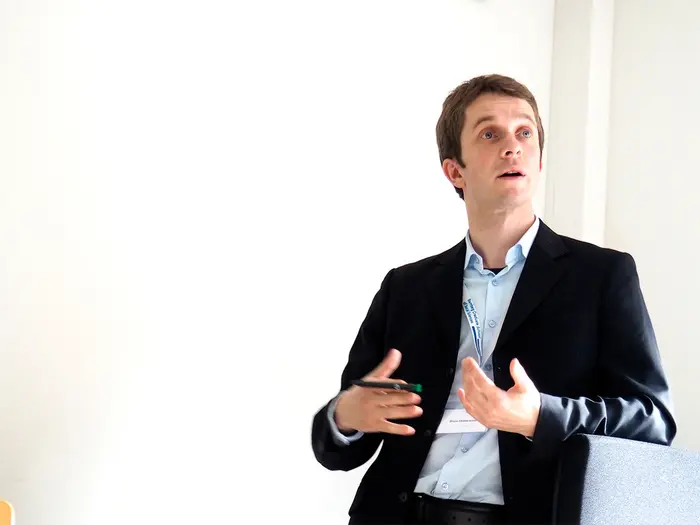
"For me this was the first time I discussed methods rather than research findings. It was a very positive experience: the participants were highly skilled and were well engaged with all presentations. In terms of content, the organizers managed to have a wide range of qualitative methods and approaches discussed. Also the combination of speakers with an academic background (both junior and senior) and practitioners was very fruitful. This way, theoretical and methodological considerations were mixed ‘on the spot’ with empirical insights both from research and from the 'field'."
_ Bruno Vandecasteele, University of Ghent
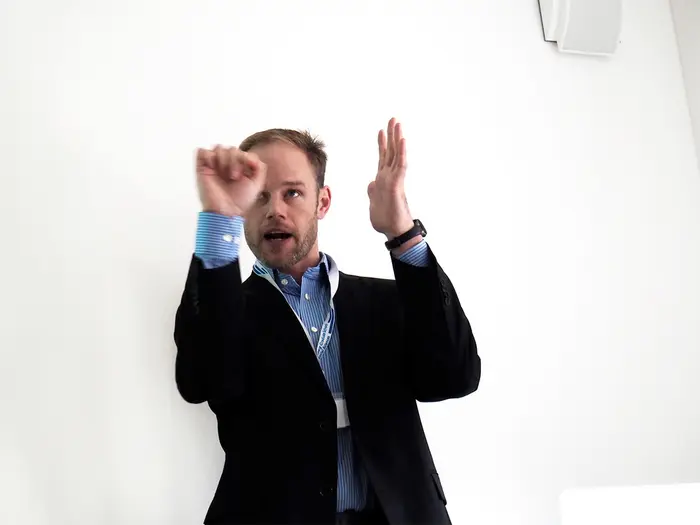
"From a PhD student's perspective, I think the workshop is a great success because we do not need too many fancy conferences at our stage. What really could benefit us is workshop with limited participants but a clear focus. Presenters not only introduce their methodology and findings but also have plenty of time to interact with the audience. Even some presenters could get insights from the discussion, not only the audience. I sincerely hope you could organise other workshops like this one in the future. And I encourage all PhD students in Europe to participate (if the topic is relevant to their research)."
_ Shichen Wang, University of Geneva
The great variety of presentations, both in terms of content and methodology, has been very well received by the participants and guest speakers.
"Great workshop that showed the vibrancy of more qualitative research on the Council. Much to look forward to in terms of future research and in the application of robust methods to the very difficult to study questions regarding negotiating dynamics in Council decision-making."
_ Derek Beach, University of Aarhus
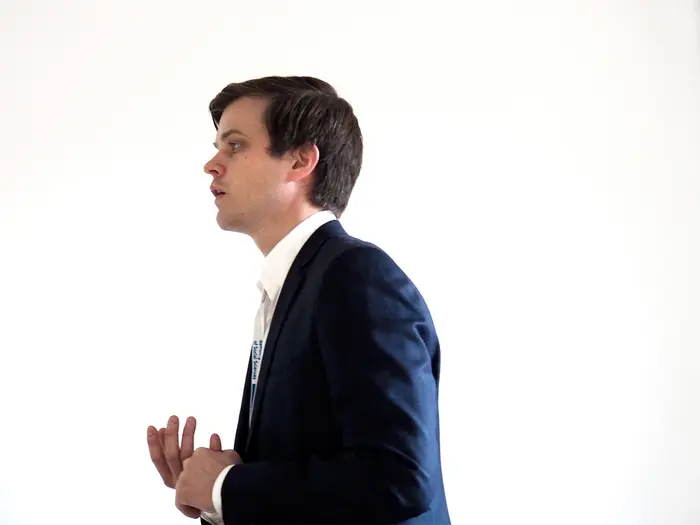
Indeed, we tried to account for both theory and methods, but the focus was slightly more on methods and empirics, than on theory.
The summary of extant research, from a theoretical as well as a methodological angle, was given in the beginning of the workshop (Isabel Winnwa, University of Bamberg), to highlight the most important developments: quantitative studies have investigated topics like factors influencing policy outcomes (national preferences, saliency etc.), occurrence of bargaining, involvement of different actors at different levels of the Council, coalition and voting dynamics, etc.; qualitative studies on the other hand have focused on the role of arguing and problem-solving approaches, role conception and socialization, the impact of different factors (salience) on actors in negotiations etc.; there have also been a number of cross-method studies investigating similar topics.
In terms of theory, the field of EU research has been largely marked by a divide and dispute between more rational choice and more constructivist scholars, without leading to a constructive result. Some studies have also focused on inter-institutional dynamics as well as effects of the two-level structure of the EU. Most interestingly, much of the extant research has been rather structure-focused in nature, especially the quantitative part, largely overlooking the impact and importance of process-related factors and variables.
"The great thing about this workshop was that it explicitly linked methods to substance. Quite often, methodological debates remain abstract and somewhat idealistic. At this workshop, methodological insights could be applied to a concrete case, which is Council decision making. Thus making the discussions far more lively and the insights more useful."
_ Sandrino Smeets, University of Radboud
The main part of the workshop was centered on the use of qualitative methods to conduct research on the Council and its challenges and benefits: Most of the research presented addressed the issue of a lack of process-oriented research on the Council and provided different approaches to understanding decision-making processes and influence of different actors, starting with an analysis of the influence of domestic constraints on negotiations (Markus Johansson, University of Gothenburg).
Various sessions dedicated to particular qualitative methods and their usefulness, as well as challenges they pose: QCA was presented as a method to evaluate influence of Council Presidencies, by doing both case studies as well as cross-case comparison and generalizability probing (Bruno Vandecasteele, University of Ghent). Process-tracing was presented as a valid method to engage in sound and thorough process-focused research, following a Bayesian logic, to improve the insight gained from case study research (Derek Beach, University of Aarhus). Another session was centered around the question of conducting empirical research on the Council given its secrecy and inaccessibility: indeed, priority access and participant observation can prove to be key when trying to investigate process-related variables, such as actor behaviour and strategies (Sandrino Smeets, University of Radboud).
"I thoroughly enjoyed the workshop on qualitative analysis of the Council in beautiful Bamberg! It brought together not only a fine selection of established and upcoming scholars but also added the crucial perspective of practitioners, which is ever so important in our line of research depending on getting details right. What struck me was the heterogeneity of the different methodological approaches one can group under the label "qualitative" research, from QCA over process tracing to elite interviewing and archival research. The discussion of strengths and weaknesses were particularly useful and my impression was that everyone had a lesson or two to take back home for their own research."
_ Markus Gastinger, University of Dresden
A roundtable, specifically organized to bring in actual EU experts, proved to be highly valuable, both in terms of input from policy-makers, as well as further discussion of empirical work: first a thorough presentation of negotiation tactics and important context variables in Justice and Home Affairs, such as institutional rules and involvement of particular actors like the Council Secretariat (Hans Nilsson, Council of the European Union), after which recent work on the Justice and Home Affairs sector was presented, beginning with the question why some state representatives decide to forego consensus (Christof Roos, Free University of Brussels), as well as the effect of initial positions in contrast to implementation pressure on state behaviour (Natascha Zaun, University of Mainz). Important questions were raised as to the importance of transparency in qualitative research, the limited potential of generalizability and potential remedies, as well as the necessity to pay attention to the bigger picture, even when conducting case studies (Raphael Bossong, European University Frankfurt Oder)
During and after the workshop, the participants expressed their satisfaction with both the input in terms of content and methods, as well as the opportunity to discuss and connect.
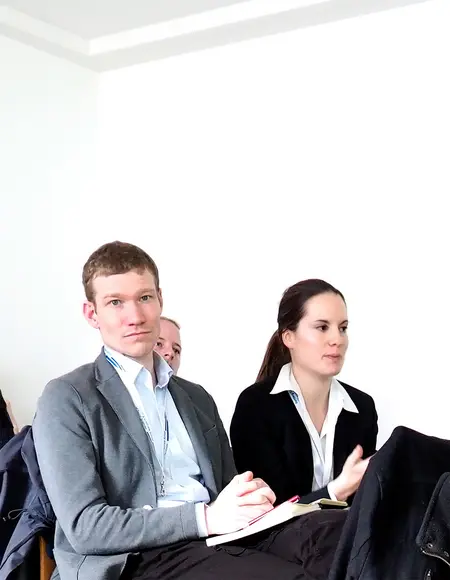
"The BAGSS workshop on qualitative methods in research on the Council was focused and structured. The invited speakers practitioners, methods experts, and researchers provided for exciting and first hand knowledge on the workshop’s theme. They sensitised the audience on how to access knowledge on the Council as well as its staff. I learned that the challenge about this research is that it can demand a certain level of embededness, awareness for multi-dimensional processes, and skill in deciphering Council text. The workshop organisers engaged with the speakers and the audience alike providing for an intense discussion and sympathetic atmosphere."
_ Christof Roos, Free University of Brussels
"Workshop well prepared and interesting discussions with leading scholars"
_ Hans Nilsson, Council of the European Union
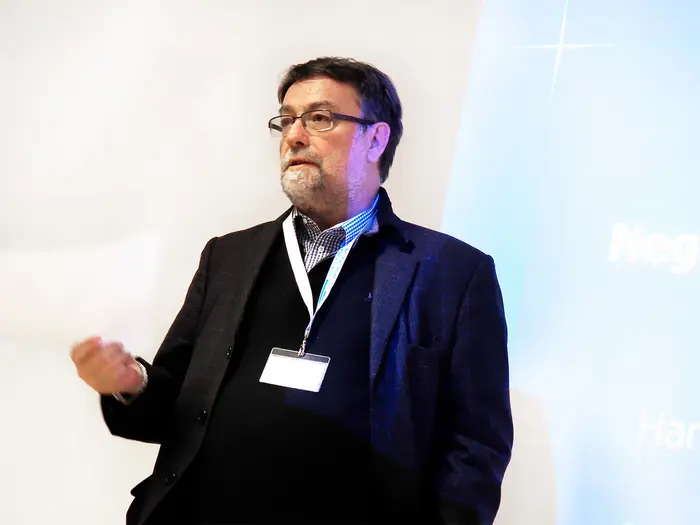
........................................................................................................................................................
// HOSTS AND ORGANIZERS
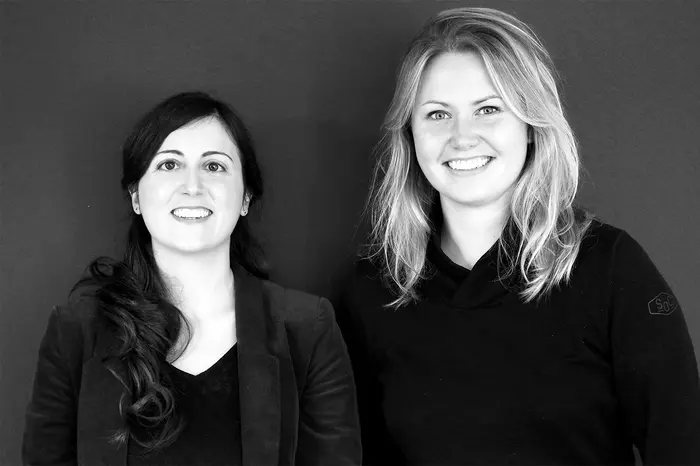
ARIADNA RIPOLL SERVENT
University of Bamberg,
Professor of Political Science, especially European Integration
Her research interests include social and gender inequalities in labour market participation and family processes and how social policies impact social stratification over the life course. In her doctoral project, she investigates whether the recent expansion of childcare services in Germany has altered parents’ gender role attitudes as well as maternal employment participation.
ISABEL WINNWA
University of Bamberg,
Doctoral Fellow at the Bamberg Graduate School of Social Sciences,
Political Science
Her research interests include the role of actors in EU decision-making processes, focusing on Council of Ministers and European Parliament, comparing the Justice and Home Affairs and Social Policy areas. In her doctoral project, she investigates the key role of actors and their strategies in legislative negotiations in intra- and interinstitutional decision-making processes.
+ go to full profile
The workshop was funded by UACES and the Bamberg Graduate School of Social Sciences (DFG Excellence Initiative).
........................................................................................................................................................
MAIN PAGE | CONTACT | LEGAL | PRIVACY POLICY | DATENSCHUTZ | IMPRESSUM
© Bamberg Graduate School of Social Sciences
Image Credits: © Bamberg Graduate School of Social Sciences
